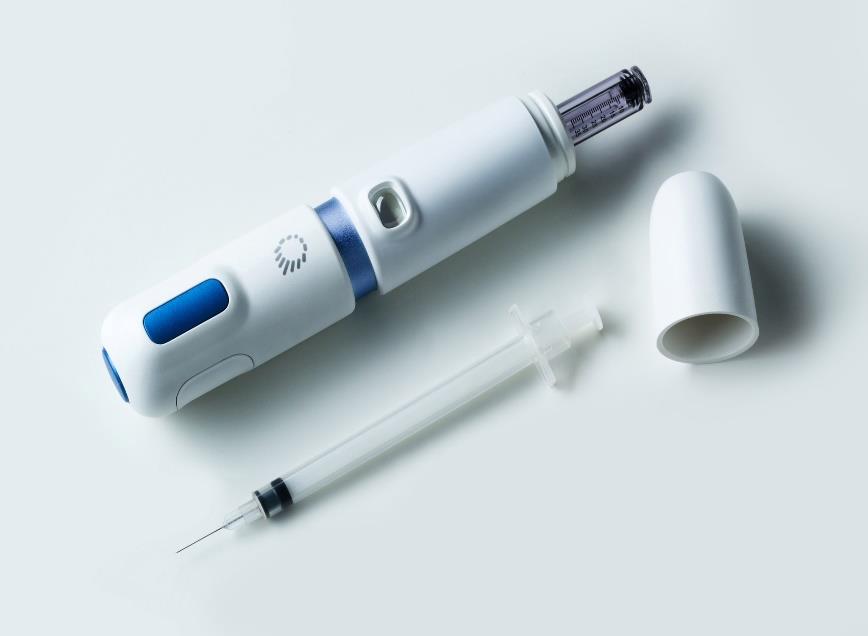The advent of needle-free injectors marks a significant advancement in medical technology, offering a myriad of economic and environmental benefits. These devices, which deliver medications and vaccines through a high-pressure jet that penetrates the skin, eliminate the need for traditional needles. This innovation not only enhances patient comfort and compliance but also has profound economic and environmental implications.
Economic Benefits
1. Cost Savings in Healthcare
One of the primary economic advantages of needle-free injectors is the potential for significant cost savings in healthcare settings. Traditional needle-based injections incur various costs, including the price of needles, syringes, and disposal of sharps waste. Needle-free systems reduce or eliminate these expenses, leading to direct savings.

Additionally, needle-stick injuries among healthcare workers are a substantial concern, resulting in costs associated with post-exposure prophylaxis, medical evaluations, and potential treatment of infections. Needle-free injectors mitigate these risks, leading to lower occupational health costs.
2. Increased Patient Compliance
Patient compliance is a critical factor in the success of vaccination programs and chronic disease management. Needle phobia is a common issue that leads to missed vaccinations and treatments. Needle-free injectors, being less intimidating and less painful, encourage higher patient compliance. Improved compliance translates to better health outcomes, reducing long-term healthcare costs associated with untreated conditions.
3. Streamlined Vaccination Campaigns
In large-scale vaccination campaigns, such as those for influenza or during pandemics, needle-free injectors offer logistical advantages. These devices can be easier and faster to use, enabling more efficient administration of vaccines. This efficiency can result in cost savings related to personnel time and resources, as well as faster achievement of herd immunity, ultimately reducing the economic burden of disease outbreaks.
Environmental Benefits
1. Reduction in Medical Waste
Traditional needle-based injections generate significant medical waste, including needles, syringes, and packaging materials. Improper disposal of needles poses environmental hazards and increases the risk of needle-stick injuries in the community. Needle-free injectors drastically reduce the amount of medical waste produced, contributing to a cleaner and safer environment.
2. Lower Carbon Footprint
The manufacturing, transportation, and disposal of needles and syringes contribute to the medical industry's carbon footprint. Needle-free injectors, being reusable or requiring fewer components, help reduce this environmental impact. Additionally, the streamlined logistics of needle-free systems can decrease transportation emissions associated with distributing medical supplies.
3. Sustainable Healthcare Practices
Adopting needle-free injectors aligns with the growing emphasis on sustainable healthcare practices. Hospitals and clinics are increasingly seeking ways to reduce their environmental impact. Needle-free technology supports these efforts by minimizing waste and resource consumption, promoting a more sustainable approach to healthcare delivery.
Case Studies and Examples
1. Immunization Programs
Several countries have successfully integrated needle-free injectors into their immunization programs. For example, in India, the introduction of needle-free devices in polio vaccination campaigns has enhanced vaccine acceptance and coverage. This success highlights the potential for wider adoption of needle-free technology in other vaccination initiatives.
2. Chronic Disease Management
Patients with chronic conditions such as diabetes often require regular injections. Needle-free injectors offer a more convenient and less painful alternative, improving adherence to treatment regimens. This increased adherence can lead to better disease management and reduced healthcare costs over time.
Needle-free injectors represent a transformative advancement in medical technology, offering substantial economic and environmental benefits. By reducing healthcare costs, improving patient compliance, and minimizing medical waste, these devices contribute to more efficient and sustainable healthcare systems. As technology continues to evolve, the adoption of needle-free injectors is likely to expand, further enhancing their positive impact on both the economy and the environment.
Post time: Aug-06-2024
